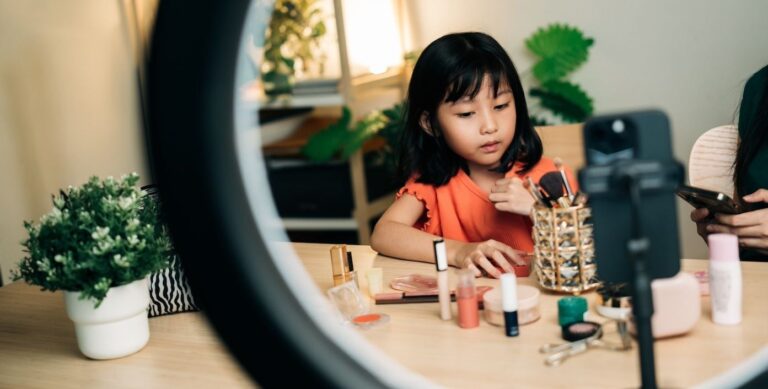Uncovering the ‘Sephora Kids’ Skincare Trend
Recent investigations led by CBS News California’s Julie Watts and her daughter’s fifth-grade class have shed light on the harmful trend known as “Sephora Kids.” This trend involves marketing adult-grade skincare products to tweens, raising concerns about the safety of such products for young skin.
The Impact of Adult Skincare Products on Tweens
The collaboration between Watts and her students revealed troubling findings: beauty brands are promoting powerful skincare products to children, often endorsed by kid-fluencers. Viral items frequently contain active ingredients like retinol and alpha hydroxy acids, which experts warn may cause harm to developing skin.
AB 728: A Legislative Response
In response to these concerning findings, Assemblymember Alex Lee of Milpitas has introduced AB 728. This legislation aims to prohibit the sale of certain anti-aging skincare products to children under the age of 13, highlighting the need for protection against inappropriate marketing.
Voices from the Classroom
During a recent hearing, 11-year-old Scarlett Goddard-Strahan shared her personal experience with a retinol product that caused painful side effects, affecting her sleep for weeks:
“Years later, I still have bumps on my cheeks. If you look at my cheeks now, they get red and itchy when I sweat and when I’m out in the sun. I used those products because I wanted to feel pretty and more confident. But now I feel embarrassed and pretty self-conscious.”
Concerns Over Marketing Practices
The fifth graders also highlighted how eye-catching packaging is specifically designed to attract young consumers. They observed that health warnings are often printed in small text, making them easily overlooked. One student noted, “The trends can trick our brains into wanting to try them.” This sentiment reflects a broader concern about the manipulation involved in marketing towards children.
Industry Pushback on AB 728
Despite the bill’s initial progress, it faced significant opposition from industry groups and health advocates. Margaret Gladstein from the California Retailers Association argued that enforcing such a ban would be nearly impossible, while Assemblymember Rebecca Bauer-Kahan raised concerns about the difficulty of defining “anti-aging” in a legal context.
Current Status and Future Advocacy
AB 728, although it passed its first policy committee with a 4–2 vote, was ultimately shelved by Appropriations Chair Buffy Wicks, stalling its progress. Julie Watts and her students are still awaiting a response regarding a potential interview with Wicks, demonstrating their continued commitment to this important issue.
The Importance of Awareness and Advocacy
While the future of AB 728 remains uncertain, the efforts of these young activists have already sparked vital discussions about the inappropriate marketing of skincare products to children. As the trend continues, it’s clear that young voices are ready to advocate for safer practices and greater awareness.
